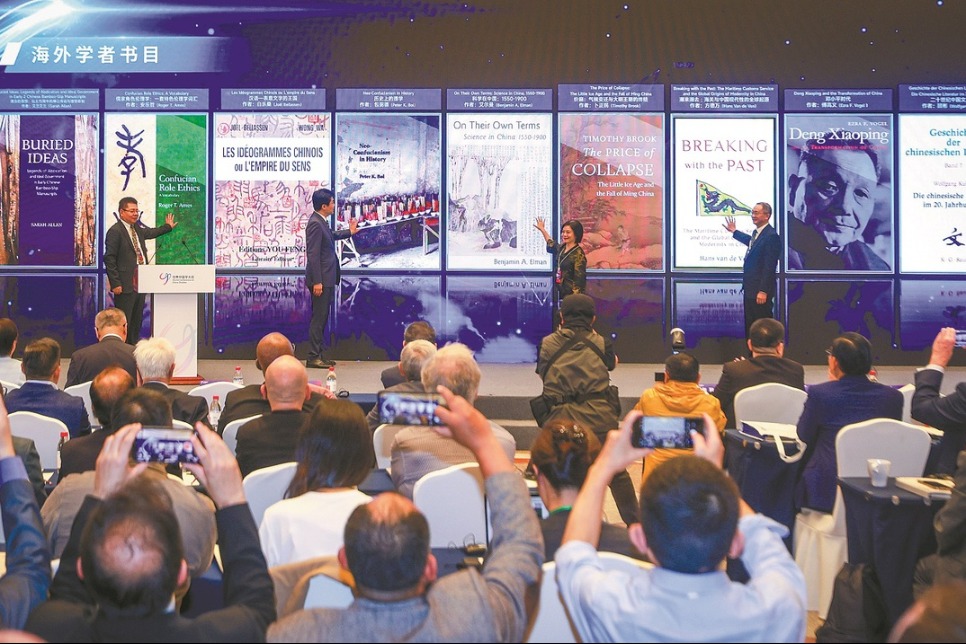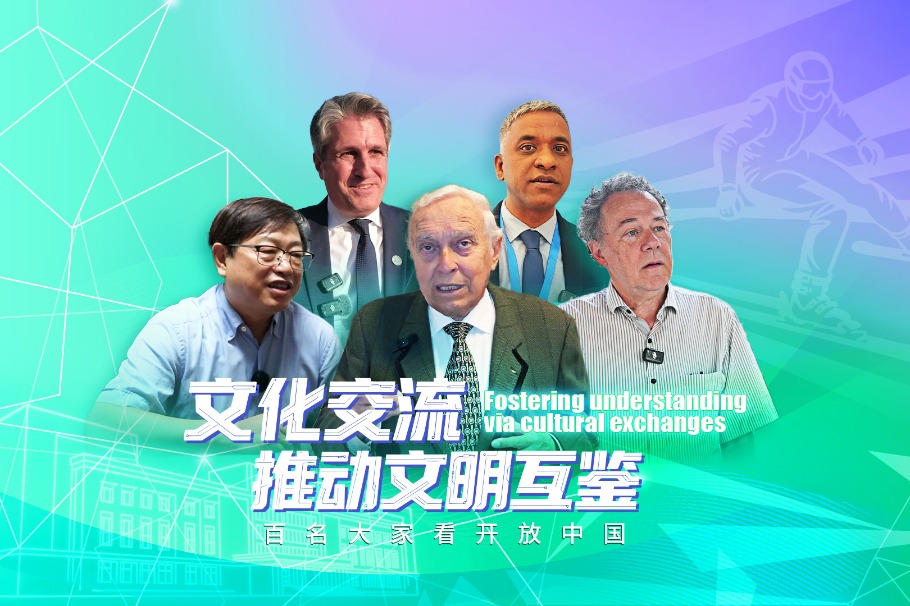Builder of bridges
Law is an instrument for dialogue between the West and the East


In 2025, the 55th anniversary of the establishment of diplomatic relations between China and Italy will be marked. These have been years of friendship and cooperation, not only between the authorities and institutions of our two countries, but also between our peoples. I believe the highest point of this friendship was reached in 2019, with the signing of the memorandum of understanding between China and Italy to jointly advance the construction of the Belt and Road Initiative. Italy was the first (and so far the only) G7 country to have joined the global agreement proposed by China. It was a wise, courageous and beneficial decision for Italy, and at the same time advantageous for China.
On that occasion, President Xi Jinping wrote an article for the most prestigious Italian newspaper, Il Corriere della Sera, in which he stated: "China and Italy are, respectively, symbols of Eastern and Western civilizations." A great recognition. Unfortunately, the current Italian government subsequently decided not to renew the agreement. However, relations between the two countries remain strong and mutually helpful: the numerous visits to China by Italy's highest authorities bear witness to this fact.
I have frequented China for a long time, in various roles. I first visited China officially in 1999 when I was minister of justice. Later, I became general secretary of the Italian Communist Party (the heir of the historic Italian Communist Party), for 13 years, from 2000 to 2013. Therefore, in China I met the leaders of the Communist Party of China on many occasions and I had the opportunity to appreciate the political and ideological positions of the CPC.
At the end of my political career, I developed a long-standing relationship with China through extensive academic engagement with Chinese universities, first as a university professor and now also as dean of the Faculty of Law at Sapienza University of Rome. In this way, I personally ascertained the extraordinary progress achieved by China in every field. I will mention only a few data points: In recent years, nearly 800 million Chinese citizens have been lifted out of abject poverty; education, culture and scientific research are being massively encouraged, with remarkable results; ecological transformation is a consolidated reality; the foreign policy based on peace, cooperation and support for the development of other nations is an effective and sincere model for promoting friendship among peoples.
The concept of building a community with a shared future for mankind was proposed by President Xi as a vision for the world in 2012. Our planet should be an inclusive community, removing barriers, walls and prejudices. The pandemic itself should have taught us that there are crucial challenges facing all of us that can only be overcome through the sharing of scientific research, information, materials and resources. Viruses know no borders. The ozone hole knows no borders. The melting of glaciers knows no borders. Radiation and nuclear waste know no borders. The only possible response for the future of humanity is cooperation.
In dealing with these challenges, law is a powerful instrument. President Xi has repeatedly emphasized that China must strive toward the construction of state governance based on the rule of law. Governing the country according to law has been a "fundamental strategy" of the CPC since the 18th National Congress in 2012, aimed at achieving equity and social justice within the framework of legality. Socialism with Chinese characteristics is thus offering an original evolution of Marxist ideology (one which, in the West, has remained essentially static for over a century) by assigning a significant role to law and legal systems, which traditionally were not adequately valued within Marxist theory. The approval of the new Civil Code of China, which came into force on Jan 1, 2021, moves exactly in this direction. The code is the result of a complex fusion of foreign legal models (especially Roman law) with China's socialist practice and multi-millennial cultural heritage. It is also the only civil code in the world that regulates the law of the future, providing a legal framework for both the digital revolution and the ecological transition (the "twin transition").Indeed, it includes legal provisions on the protection of privacy, data and the virtual assets of the network; on image rights and intellectual property; it regulates contracts for the transfer of technological services and pays close attention to environmental matters.
It is, therefore, the law of the future, as it successfully combines tradition and innovation. Law is an extraordinary instrument of dialogue between the West and the East. In this field, China and Italy have developed over the years a fruitful dialogue that may benefit all of Europe. It is also for this reason that we promptly translated the Chinese Civil Code into Italian, thanks to the cooperation between Sapienza University and Zhongnan University of Economics and Law (ZUEL) in Wuhan. The collaboration between the two universities has produced remarkable results. On Jan 13, 2017, the "Sino-Italian centre for legal studies" was founded. On March 10 of the same year, the "Sino-Italian legal library", the largest in the world outside of China, was inaugurated at Sapienza in the presence of Minister of Education Valeria Fedeli. In 2018, in Wuhan, Sapienza's branch at ZUEL was opened and the bachelor's degree program in Comparative and European Law in China was launched, exchanging 17 visiting scholar positions and organizing 15 international conferences. Currently, five Sapienza degree programs are offered at ZUEL, with a total of 400 students enrolled.
So, after this intense work and these achievements, on Sept 30,2024, I received the highest Chinese honor for a foreign national: the Chinese Government Friendship Award. An award that is an immense honor and that recognizes not only me but also the extraordinary team that made these achievements possible.
Law, therefore, represents one of the possible declinations of the "shared future for mankind", because law builds bridges between cultures, civilizations, religions and ideologies.
It is certainly no coincidence that the earliest Roman jurists — from the ancient Roman civilization who literally invented legal science as a specialized discipline, autonomous from all the others — were called pontifices, or pontiffs: bridge-builders, capable of connecting the two banks of a river and thereby enabling women and men to come together.

The author is former minister of justice in Italy, dean of the Faculty of Law at the Sapienza University of Rome and dean of the ZUEL-SUR School of Law and Economics at the Zhongnan University of Economics and Law. The author contributed this article to China Watch, a think tank powered by China Daily. The views do not necessarily reflect those of China Daily.
Contact the editor at editor@chinawatch.cn.
Sponsored by China Internet Development Foundation(CIDF).


































